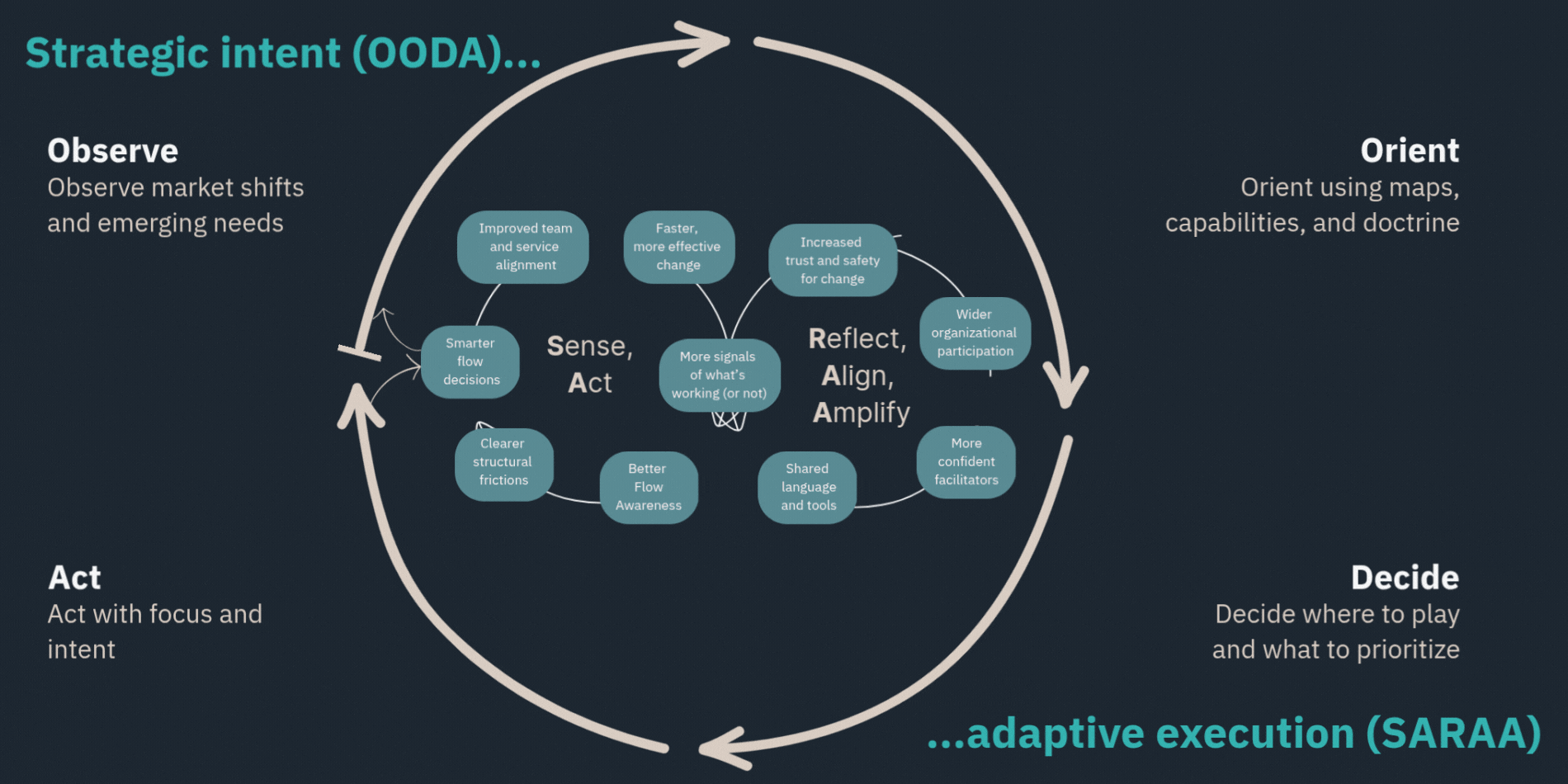How the Fast Flow Flywheel Works

One Rotation. Real Progress.
A Flywheel Rotation is a short, focused cycle that helps you move from stuck to flowing, without disruption or drama.
Instead of launching a reorg or long transformation program, you take a structured, low-risk step:
- Spot where things are slowing down
- Try a safe, targeted improvement
- Reflect on what worked
- Align around what matters
- Scale what helps
This is where strategy becomes structure, one smart move at a time.
The Inner Loop: Five Steps to Unlock Flow
We use a five-step rhythm called the SARAA Loop.
Each rotation helps you turn friction into forward motion.
🔍 Sense
Surface signals from the teams closest to the work:
- What’s slowing us down?
- Where are we overloaded?
- Are handoffs unclear?
- Who owns what?
We use tools like User Needs Mapping and Team Interaction Modelling to make friction visible.
⚙️ Act
Co-design and test small changes to team structure, boundaries, or responsibilities.
You don’t need a big plan, just a safe, well-informed next step.
Techniques include:
- Exploring feasible futures with User Needs Mapping and Fracture Planes
- Validating independent service candidates with Independent Service Heuristics
- Choosing appropriate Plays and Tactics to achieve desired outcomes
- Capturing flow decisions and building a flow roadmap
- Running safe-to-fail experiments
🔁 Reflect
Pause. Learn. Adjust.
After a few weeks, revisit the changes.
Ask:
- What improved?
- What didn’t?
- What new friction are we seeing?
This step builds confidence and shared learning.
🎯 Align
Connect what you’ve learned to strategic goals.
Zoom out and ask:
- Are we closer to what matters?
- Do teams understand the bigger picture?
- Where should we focus next?
This keeps structure in sync with strategy, not just reactive fixes.
📈 Amplify
Scale what’s working.
Support more teams.
Make the decisions visible.
Craft internal playbooks that capture what works, and how to apply it.
You now have the ingredients of a living roadmap, one that evolves with your teams.
Real-World Example: Lumana
Lumana, a fast-scaling lifestyle brand, used the Flywheel to:
- Identify overloaded teams and unclear handoffs
- Redesign team responsibilities using Fracture Planes
- Run small experiments to clarify ownership and reduce delays
- Align their new structure to a strategic push toward digital experiences
- Scale the practices that worked across other parts of the org
The result?
Faster delivery, clearer ownership, and a growing internal capability to adapt.
What You’ll Get from One Rotation
- ✅ Clarity on what’s slowing you down
- ✅ A shared understanding of your constraints
- ✅ A safe action to test a structural improvement
- ✅ Clear learning and alignment
- ✅ A starting point for an evolving roadmap
Who Should Run a Rotation?
- Product and platform leaders sensing delivery friction
- Org designers and coaches supporting structural evolution
- Change agents looking for momentum, not mayhem
Whether you’re starting fresh or already mid-transformation, a rotation helps you take a confident next step.